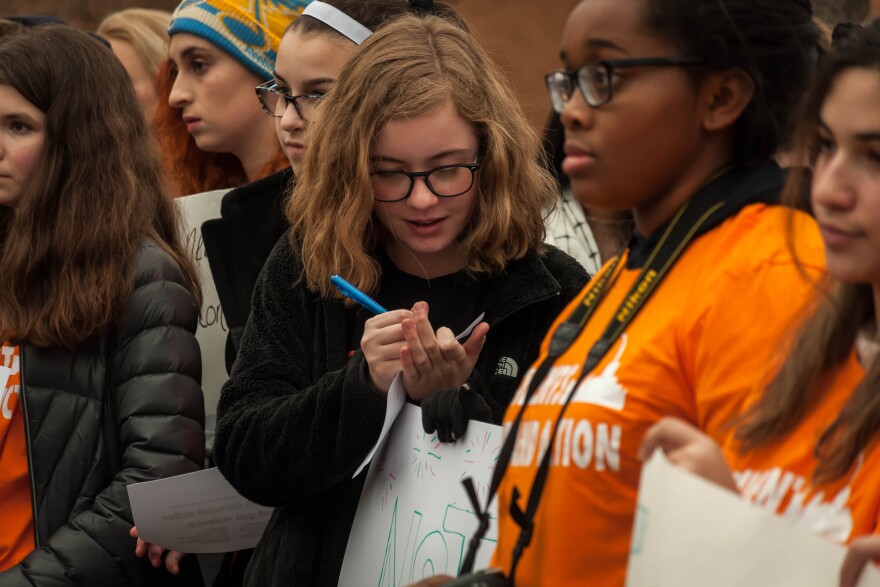School counselors in Missouri already have high student caseloads and added duties, even as teachers, students and parents here and around the country call for more mental health services in schools to prevent future mass shootings.
Missouri, and most other states, have a shortage of school guidance counselors — and limited money to hire more.
School leaders and social workers say the mental health needs of students are increasing, potentially overburdening school counselors. Social workers and some school leaders say school counselors connect with students, which makes schools safer. They say it's a better alternative to adding more security guards or arming faculty.
“We don’t believe in fighting fire with fire. We feel the need to really get to know our students, to form relationships with them,” said Sharon Sevier, advocacy director for the Missouri School Counselor Association.
On average, there is one guidance counselor in Missouri for every 347 students, according to the American School Counselor Association. The organization recommends a ratio of 250 students for each counselor. The national average is a caseload of 482 students.
The ratio widens to one certified social worker per 1,550 students and one per 3,230 students for each psychologist, according to the Missouri Association of School Psychologists.
Counselors are able to devote little time to students’ mental health needs when they’re also “saddled with extraneous duties,” Sevier said, such as helping them with college applications and attendance.
“We have to be available for them and doing our job every single minute,” said Sevier, who previously worked as a counselor in the Rockwood and Parkway school districts in St. Louis County.
Following the killing of 17 people at Marjory Stoneman Douglas High School in Florida by a former student Feb. 14, President Donald Trump proposed arming a small number of well-trained school teachers and faculty as a way to deter future school shooters.
National teachers’ unions pushed back, and educators started a campaign calling for more resources to support students rather than guns.
Students at three area high schools held walkouts or rallies to call for stricter gun laws and more school safety. Students at Clayton, Parkway Central and Riverview Gardens high schools have largely opposed the idea of arming their teachers.
Counselor-to-student ratios range from one per 200 to 500 students for public schools in the St. Louis area, according to the state’s education department. The available counseling resources are starkest in rural schools, according to Sevier.
Pamela Halstead has worked at the small Callao School District in northeast Missouri for 20 years. She said the 70 students in the rural K-8 district increasingly lack social and problem-solving skills.
“Since I’ve been here, that need has increased tenfold,” said Halstead, who has been the school administrator the past five years.
In the past, Callao has partnered with neighboring districts to share a counselor as a way to save money. This year she contracted with someone so the school could have its own counselor, but that person is only in the building one day and on call the rest the week.
Halstead counts herself lucky she has a counselor who wants to work in her rural area with a sluggish economy as opposed to metropolitan schools. It would be “crazy” to not want more support services, she said, but there isn’t the money to afford it.
Webster University started a master’s program in school counseling this school year in an effort to address the shortage of counselors in the state. The program focuses specifically on work in schools, rather than its more broad clinical social work program. It has four students this year but wants to increase to about two dozen.
Follow Ryan on Twitter: @rpatrickdelaney




